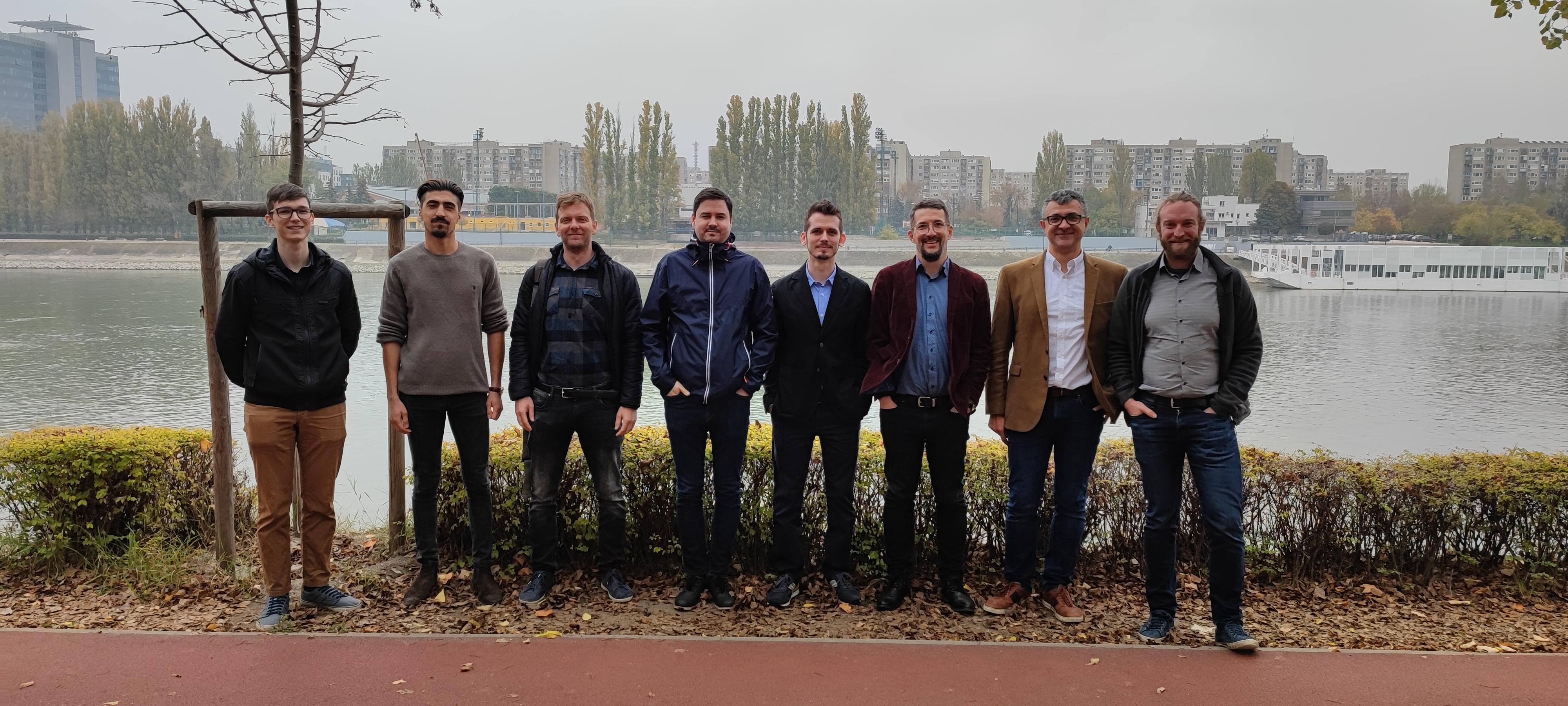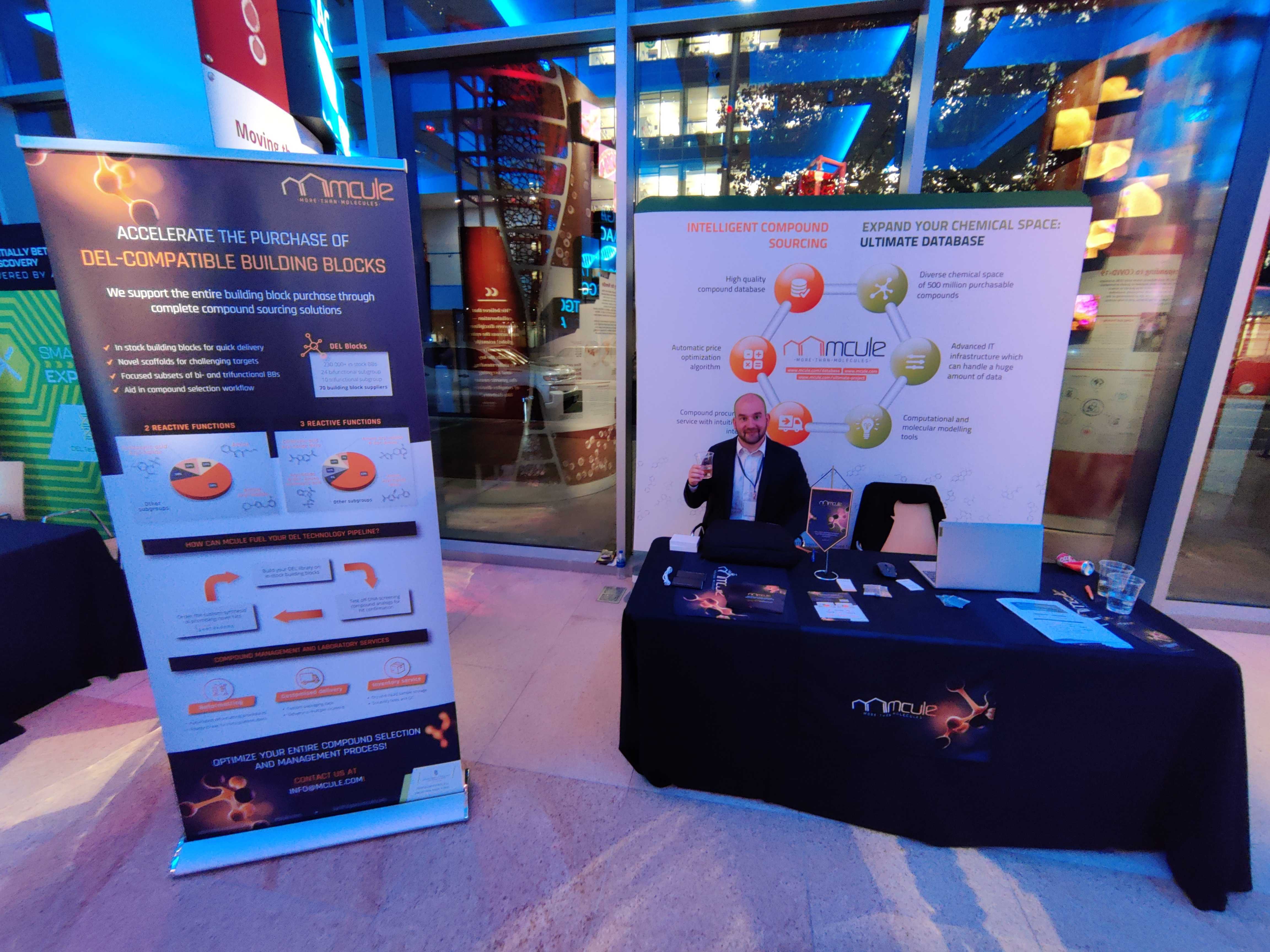Every month, during a Coffee Break, we dive into the stories of EIC innovators and get a glimpse of the people behind EIC projects. Today’s guests are David Havasi and Attila Wootsch, respectively Project Manager R&D and Chief Innovation Manager at Mcule, a Hungarian company that aims to provide the best web-based drug discovery platform for pharmaceutical researchers.
Through their EIC Transition project ‘DiaDEM’, they participated in one of the EIC Innovation Bootcamps. Find out more about their story in this month’s EIC Coffee Break.
Can you tell us how the idea for your innovation started? Was it something that was bouncing in the back of your head for a long time?
David Havasi/Attila Wootsch: Our company, Mcule, was founded in 2011 with the aim to develop the best online drug discovery platform. Back then, the founders realised that there was no convenient online platform suitable for the pharmaceutical industry that would combine efficient compound sourcing with advanced searching tools. There was a strong need from research groups to get physical compound samples quickly and efficiently. That’s how we became an aggregator of chemical suppliers’ catalogue compounds. The concept is similar to other marketplaces. If you want to go to Paris, you go to a single marketplace of hotels, e.g., Booking.com, to get an optimised offer instead of searching the websites of individual hotels. That’s how we became one of the most known aggregators for chemical compounds in the drug discovery industry. After the platform turned out to be successful, we realised that we could open it up for other applications and industries.
This brings us to our current EIC transition project, ‘DiaDEM’, a digital discovery platform for organic electronics. The project is developed in collaboration between the University of Liverpool, Nanomatch GmbH and us. Initially, we were contacted by Professor Alessandro Troisi from the University of Liverpool, since in the drug discovery industry, Mcule already had a well-established business however, for organic electronics such databases and compound aggregation do not exist.

His research team developed a virtual screening method on how to enhance the selection of small molecules for organic electronics development. The consortium is now developing this platform for organic electronics providing a one-stop-shop solution from digital discovery to experimental verification by linking the virtual screening of small molecule candidates with the chemical supply chain. Much like novel lead compounds are explored in the drug discovery industry, the field of organic semiconductors needs to extend the palette of suitable structures for light-emitting diodes, photovoltaics, transistors, sensors, etc.
Can you tell us a little bit about a tough moment you had at the company and how you managed to push through this?
David Havasi/Attila Wootsch: Managing the growth of Mcule was definitely a tough moment. We grew from 5 people to 40, which is a great challenge from the organisational point of view. Some people say it's easier to manage growth. Everybody can manage people, the real issue lies with the engineering part, making sure you have a nice product. But in fact, how to manage a company and its people is also a science that shouldn’t be underestimated. A former manager of mine used to say “you have two ears and one mouth” meaning you must listen twice as much as you talk. In other words, focus on understanding the other’s needs rather than repeating your own solution over and over. I believe this is particularly important when transforming academic knowledge into an actual company and managing its growth.

What are you currently reading or what book inspires you the most, be it personal or professional?
David Havasi: If I had to mention a business-related book, it would be ‘The Second Curve’ by Charles Handy. It made me realise that you sometimes need to rethink what you are doing and start working on new things before it is too late - and it seems to be relevant not just business-wise.
Attila Wootsch: I usually don't read business books, to be honest. If I have to say an all-time favourite it would be ‘The Master and Margarita’ by Bulgakov, it’s a book that always inspires me. A book that I’m reading right now is called ‘Intrical’, which is about politics in the Middle Ages. Again, nothing to do with business, more for amusement and ‘cleaning up the soul’.
If you could talk business over lunch with either a large CEO or global leader, who would you choose and why?
David Havasi: To meet with Tim Cook, the current CEO of Apple, would also be interesting of course. Not necessarily about business, but just to share some basic thoughts and ideas.
Attila Wootsch: It would be very interesting to have dinner with someone with extreme knowledge in a particular field, like a Nobel Prize winner. I had the opportunity to see a lecture by George Olah once, who had very interesting theories about philosophy and methanol, but unfortunately, he died. Finally, I would also like to mention the Pope. Perhaps also not at a business level, but he has some interesting thoughts and ideas about charity.

DISCLAIMER: This information is provided in the interest of knowledge sharing and should not be interpreted as the official view of the European Commission, or any other organisation.

